5 Symptoms of a Bad Mass Air Flow Sensor (and Replacement Cost)
Is your engine lacking power, stalling, or getting worse gas mileage lately? A faulty mass air flow (MAF) sensor could be to blame. This important engine management component monitors the air entering your engine to optimize performance.
Let’s look at the common symptoms of a failing mass air flow sensor along with how much it will cost to replace the MAF sensor.
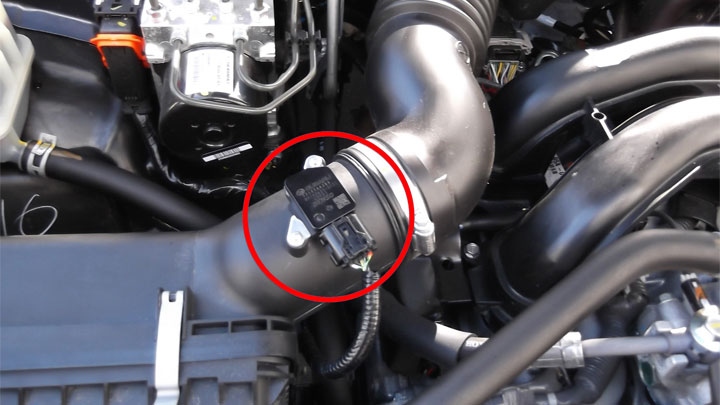
Top 5 Bad MAF Sensor Symptoms
Your mass air flow sensor acts as the eyes and ears of your engine’s internal computer. But what happens if it starts sending bad information?
All heck can break loose under the hood. The MAF is responsible for letting the engine control module (ECM) know exactly how much air is surging into the combustion chambers. Without accurate airflow readings, the ECM gets confused on fuel amounts and the whole delicate balancing act falls apart.
Too much or too little gas gets dumped into the cylinders, causing your engine to run in a state of lean or rich chaos. Performance plummets and that smooth power you’re used to goes out the window.
Luckily, your car will start displaying certain symptoms if the MAF sensor goes rogue. If you notice two or more at once, the evidence points to your MAF sensor as the culprit sending bogus data.
Related: Symptoms of a Bad MAP Sensor
#1 – Rough Idling
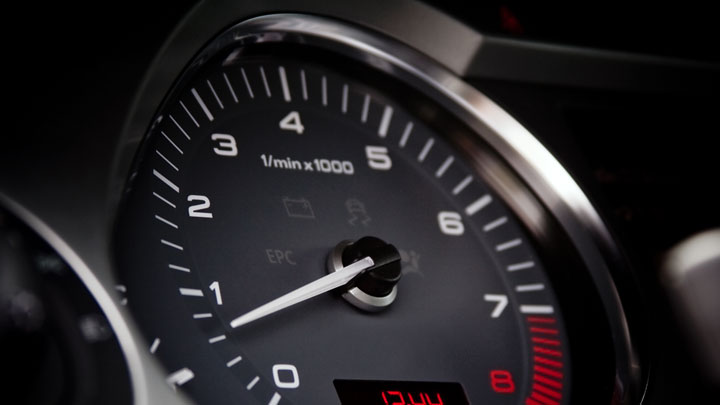
When the mass air flow sensor is bad, the engine control unit will not receive any information from it. As a result, the engine control unit won’t know the proper amount of fuel to have injected into the cylinders.
This will cause the engine to experience rough idling or revving on its own whenever you park or stop the vehicle. Watch the tachometer on your dashboard and see if your RPM speed fluctuates rapidly in an idle position. If it does, then you probably have a bad mass air flow sensor to worry about.
#2 – Engine Stalling
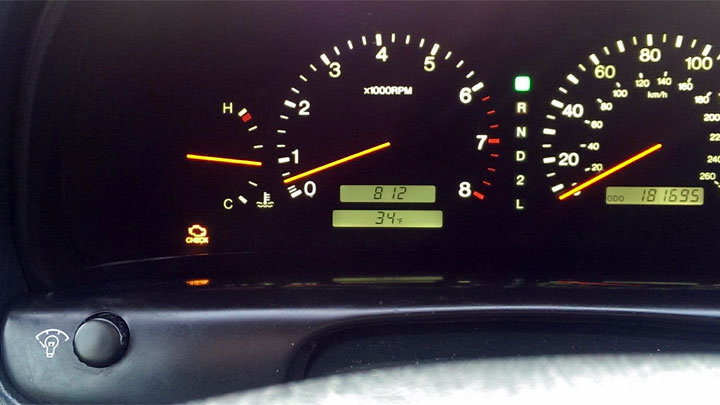
You may start your vehicle, and everything will seem fine. However, shortly after you begin driving the vehicle, the engine may stall at some unexpected moment. This will prompt you to have to start your engine again.
If you keep experiencing this engine stalling problem, try to get your vehicle to the nearest auto mechanic before you cannot start your engine at all. If you already experienced rough idling before this symptom, then stalling will further confirm that you have a bad mass air flow sensor.
#3 – Acceleration Hesitation

If you step on the gas pedal to accelerate your vehicle and experience hesitation as you try to go faster, you might have a bad mass air flow sensor. This can definitely be confirmed if the hesitation is followed by jerkiness.
The car will start to jerk a lot as you try to go faster. These are all signs that your engine is not receiving the correct amount of air and fuel. Although other issues can cause this to happen, check the mass air flow sensor to see if that is still functional.
#4 – Engine Runs Too Rich or Too Lean

A rich fuel to air mixture in the combustion chamber means there is more fuel than needed in relation to the air in the cylinders. If you have a lean fuel to air mixture, then not enough fuel is available for the amount of air in the cylinders for ideal combustion.
Either case can spell trouble for the combustion process of the engine because it will either cause insufficient power to be generated or too much fuel to be consumed.
The worst part is that sometimes you won’t even notice this problem unless you keep track of your miles per gallon. If you notice that you get fewer miles per gallon, then you probably have one of these two conditions.
Consequently, fuel trim diagnostic trouble codes like P0170 and P0173 may get stored by your vehicle’s ECM. An OBD2 scanner would confirm.
#5 – Bad Fuel Economy
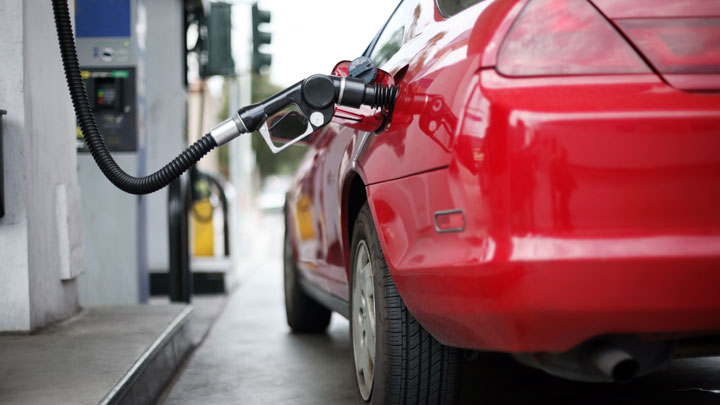
If your engine runs too rich because of a bad mass air flow sensor, you can expect poor fuel economy as a result. The engine control unit might send too much fuel into the cylinders of the engine because it doesn’t know how much air flow mass is in there.
The more fuel that is consumed per combustion, the more it will drain your wallet at the gas pump.
MAF Sensor Replacement Cost
Best places to order parts? See: 19 Best Online Auto Parts Stores
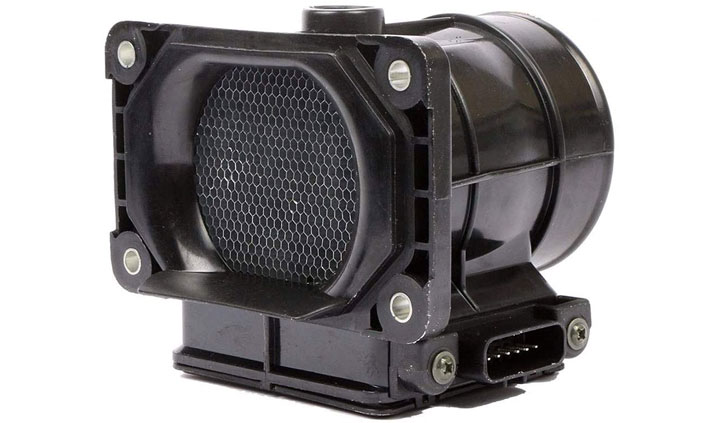
The replacement cost of a mass air flow sensor can anywhere from $80 to $380. The cost of the part alone is about $30 to $300 with the lower end of the range for common aftermarket mass air flow sensors while higher quality or more complicated OEM sensors are more expensive. Expect to pay around $50 to $80 in labor if you allow a professional to replace it.
This is not a hard job to perform yourself since the MAF sensor is usually located in an easy to reach area on top of the engine. So if you have even the most basic mechanic experience, it shouldn’t take you more than a few minutes to replace it.
Related: Code P0110, Code P0113
If you’re not confident in your abilities or want to make sure you’re getting the correct part, go to a professional mechanic and have them do the job for you. The biggest expense will be for the cost of the part anyway.
You won’t be able to last too long without a fully functional mass air flow sensor. Your ability to properly control your vehicle will be compromised.
It is better to just replace the sensor as soon as possible before your problems get worse. More importantly, you should do so before your engine gets damaged beyond repair.
How a Mass Air Flow Sensor Works
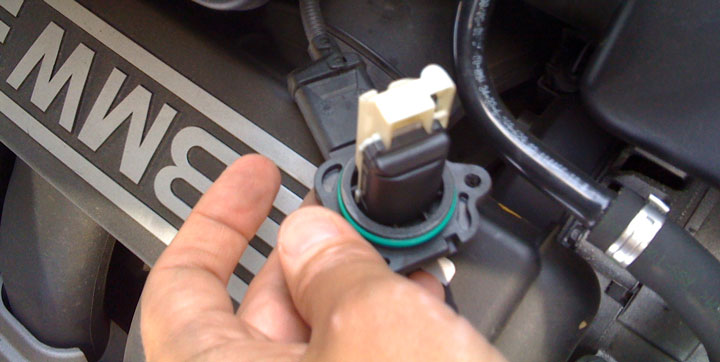
When air from the outside enters the engine, the mass air flow sensor detects the mass of this air. Once the air flow mass is calculated, the sensor sends this information to the engine control module.
From there, the unit can correctly tell the fuel injectors how much fuel to inject into the engine cylinders. This balances the air and fuel ratio to promote successful combustion. You see how all these components work together like this?
See Also: Code P0100, Code P0101, Code P0102, Code P0103
- Replace the Engine or Replace the Car? (11 Factors to Consider) - Apr 11, 2024
- Plastic Piece Dragging Under Your Car? (What It Is and What To Do) - Mar 21, 2024
- Timing Belt vs Timing Chain (What’s the Difference?) - Feb 27, 2024
